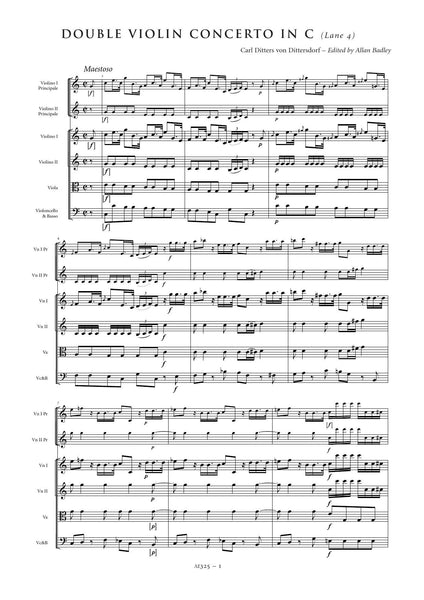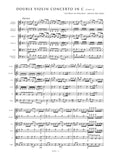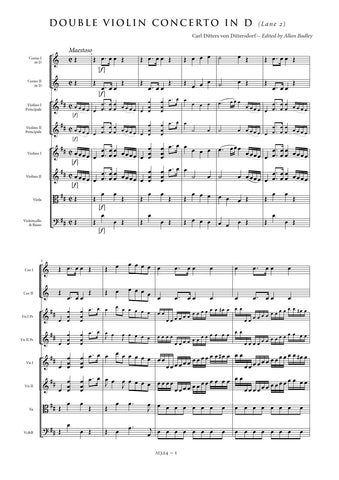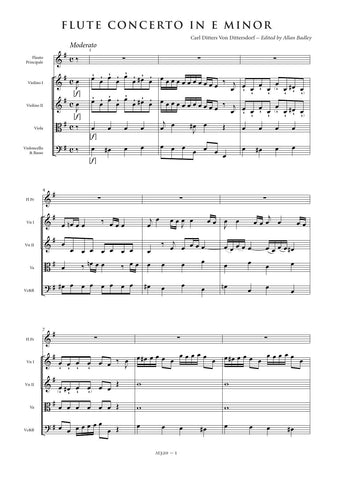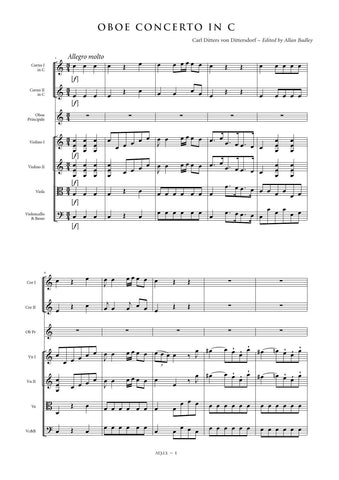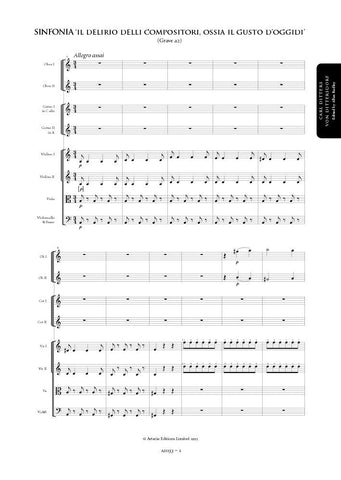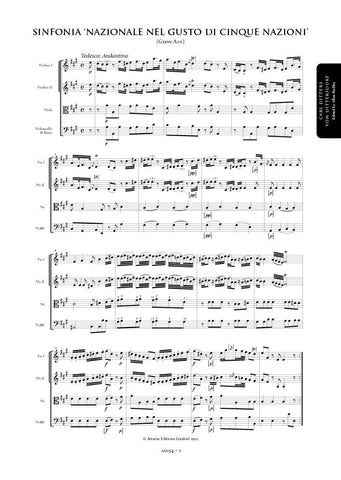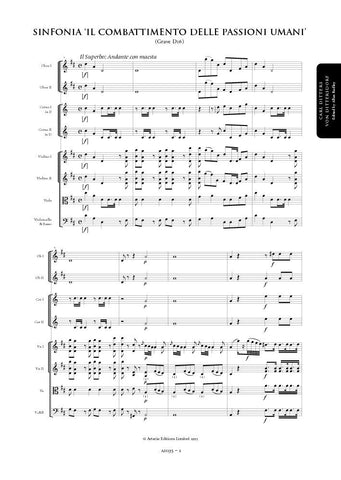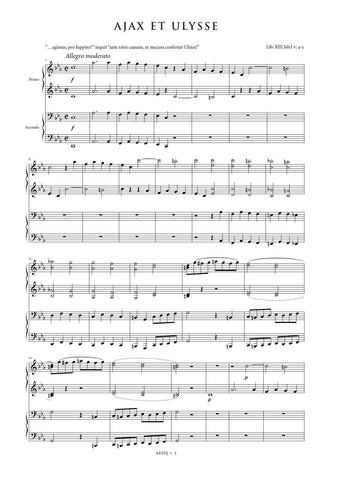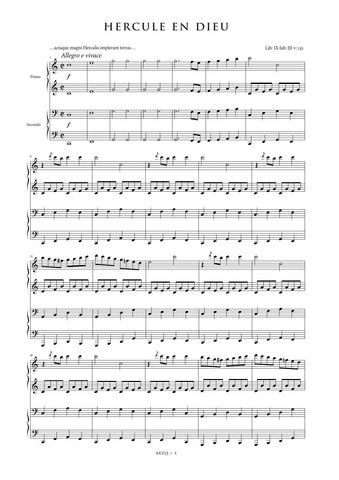Dittersdorf, Carl Ditters von: Double Violin Concerto in C major (AE325) – sheet music
Next Product
Description |
Dittersdorf, Carl Ditters von (1739-1799)
|
||||||||||||||||||||
Details |
Unlike the Double Concerto in D (Krebs 155 - Lane 2) which this work resembles in many details, the C major Concerto was not advertised in the Breitkopf Catalogue. The case for establishing its authenticity rests principally on its close stylistic similarity with the D major work. The two Double Concertos are not as technically demanding for the soloists as the composer's violin concertos. The reason for this probably lies in the need to have both parts of a similar level of difficulty irrespective of the players concerned. For whom Dittersdorf composed the works remains a mystery. However, given their relatively early date of composition, it is just possible that he performed them with his younger brother Alexander who is also known to have played in the Viennese theatre orchestras during this period. Gumpenhueber [Repertoires] lists both brothers in the orchestra as early as 1762. Certainly the notion that he composed the works to play with his brother is an attractive one and might account for their reduced level of virtuosity. The source upon which this edition is based shares the same provenance with the Double Concerto in D; the two works are copied in the same hand and carry consecutive old catalogue numbers on their wrappers. The present work, preserved in the Royal Music Library in Copengahen under the shelf mark mu6402.2530, is styled: No.4 / Concerto Duetto ex C dur / a 6 / Violino Obligato 1mo / Violino Obligato 2do / Violino Primo / Violino Secundo / Viola / et / Basso / dell Sigr= Ditters. The cadenzas in this edition are all found in the original, written out in context as if the work of the composer. In the absence of both the autograph score and an authentic set of parts, this edition presents as faithfully as possible the intentions of the composer as transmitted in the Danish source. The style and notation of articulation and dynamic markings have been standardised throughout and, where missing from the source, markings have been reconstructed from parallel passages. These are indicated by the use of dotted slurs or brackets where appropriate. Like most eighteenth-century sources, the present manuscript is at times inconsistent in its notation of appoggiature; these too have been standardised to minimise confusion. Obvious wrong notes have been corrected without comment; editorial emendations with no authority from the source are placed within brackets. Allan Badley |
||||||||||||||||||||
Score Preview (best viewed in full screen mode) |
|||||||||||||||||||||




